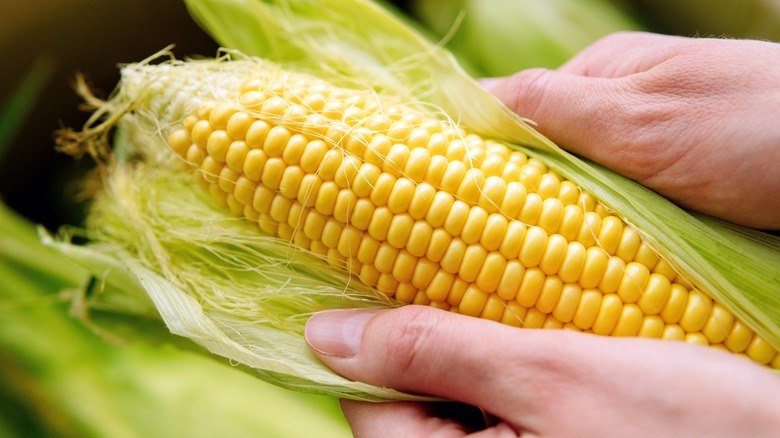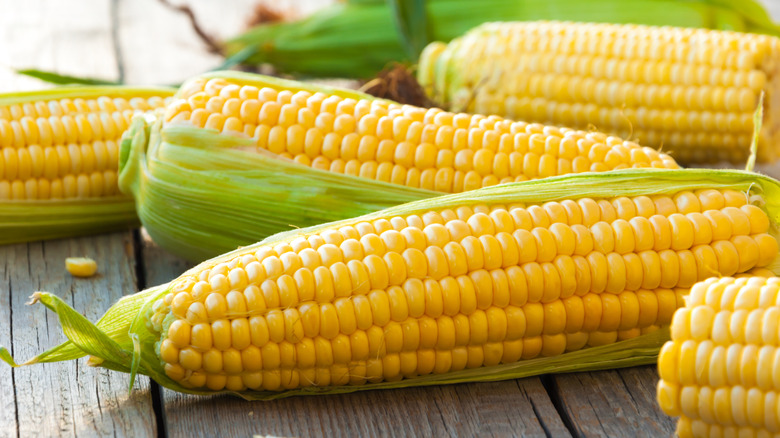Store Corn At The Front Of The Fridge To Keep It The Freshest
There is no better time to enjoy corn than when it is at its peak. Grocery shopping schedules don't always pan out, though, and sometimes you will have to buy your corn a few days ahead of when you plan to eat it. For corn that tastes as fresh as the day you got it, place your corn in the fridge — ideally, at the front.
If you've ever dug a half-frozen soda can out from the back of your fridge, you know that different areas of your fridge tend to have different temperatures. The front of your fridge is always warmer than the back, and this is an ideal environment for corn. Corn that is kept at room temperature is too warm. This warmth speeds up the rate at which the corn's sugars turn into starch, resulting in a less sweet kernel.
On the other hand, you don't want to place your corn in an area that is too cold, either. This has less to do with the temperature itself and more to do with humidity. Colder air holds less water, making the air drier and drying out your corn in the process. The front of the fridge acts as a sort of "Goldilocks zone" for the corn — not too warm, not too dry — keeping it at its absolute freshest.
Other tips for fresh corn
In addition to the proper storage spot, there are several other steps you can take to ensure your corn stays in the best condition. While it may be tempting to prepare in advance, it is important that you keep the husks on your cobs, covering as much of the corn as possible. The husk acts as a natural wrapper, protecting the corn from the elements and keeping its moisture where it belongs: in the kernel.
If you have already stripped off the husks or if you've purchased corn that has already been cleaned, don't worry. You can create a makeshift husk by storing your corn in a plastic bag. If you choose this route, do so carefully. Select a large, thin bag, and be sure to leave enough room in the bag for plenty of air movement. If you don't, the plastic will create conditions that encourage mold growth and lead to your corn spoiling faster, rather than keeping it fresh.

